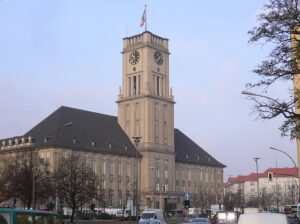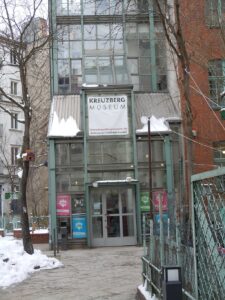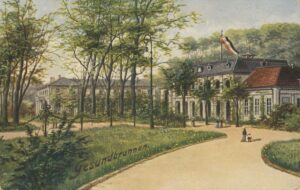Whether you just moved to the capital of Germany for a job opportunity, a love interest, or the iconic techno scene, below is part one of our two part series where we will highlight some of the quirky things you should be aware of before you get settled, things that might otherwise cause you to scratch your head, yell an expletive or two, or call your best friend crying because nothing makes sense in your new city.
Had I known about this list beforehand I would have felt way more confident in the city I’d chosen to start a life in. That’s why I am sharing them with you now, so that you can quicken the time it takes for you to feel like a true Berliner. You can thank me later.

Quirk # 1 – No free tap water.
You’ve heard there’s no such thing as a free lunch but in Berlin there’s no such thing as free tap water either. If you’re expecting to get a free glass of tap water without asking when you sit down to a restaurant, you’re going to be sorely disappointed. Though tap water is safe to drink in the city (and quite delicious), there is no such thing as a free water in this capital city – unless you can convince your server in polite German otherwise. Instead, you will be expected to purchase a bottled water if thirst is creeping in which is often the same price or more expensive than a bottle of beer. Just saying. Don’t even think about bringing your own water bottle either. Once I was at Max & Moritz, a traditional German restaurant in Kreuzberg open since 1902 and while my group was paying the bill, I pulled out my water bottle to take a swig. At that exact moment, a server walked by and condemned by healthy habit, telling me that I could purchase a water if I was so thirsty. Save yourself the public embarrassment by ordering a bottled water from the restaurant instead, or just waiting until you’re finished eating and purchase a bottle for half the price at a nearby Späti (convenience store).
Is it OK to drink Berlin tap water?
Yes! Germany, including Berlin, has some very tasty (and safe to drink) tap water (otherwise known as leitungswasser), so you can totally refill your environmentally friendly water bottle straight from the faucet. Berlin’s tap water is sourced from clean, natural groundwater, and they treat it in water facilities that follow strict standards laid out by the Drinking Water Ordinance (TrinkwV). That means you won’t find any chlorides or fluorides in Berlin’s tap water.
Berlin draws this water from under layers of sand, keeping it super clean and minimizing any bacterial stuff. And about lead pipes? Berlin waved goodbye to those back in ’73 and has been replacing them ever since.
Here’s a handy tip for crisp and safe water: let your tap run for about 30 seconds or until it’s chilly. This makes sure that stagnant water, which might have potential contaminants, gets cleared out. Prost to clean and tasty tap water, Berlin.
For more information about drinking water in Berlin, visit our source.
Why is tap water not served in Germany?
In short, because restaurants make more of a profit when you order beverages.
Do you have to pay for water at restaurants in Germany?
If you get lucky and encounter a server who takes pity on thirsty patrons, you might be able to convince them to give you a leitungswasser free of charge or for a minimal fee, but don’t count on it. Some cafes may even have a communal pitcher of water sitting on a shelf somewhere where you can help yourself to a small glass, again, better come prepared. Your best bet is to always carry a bottle with you and sneak sips in the bathroom or when your server isn’t looking.
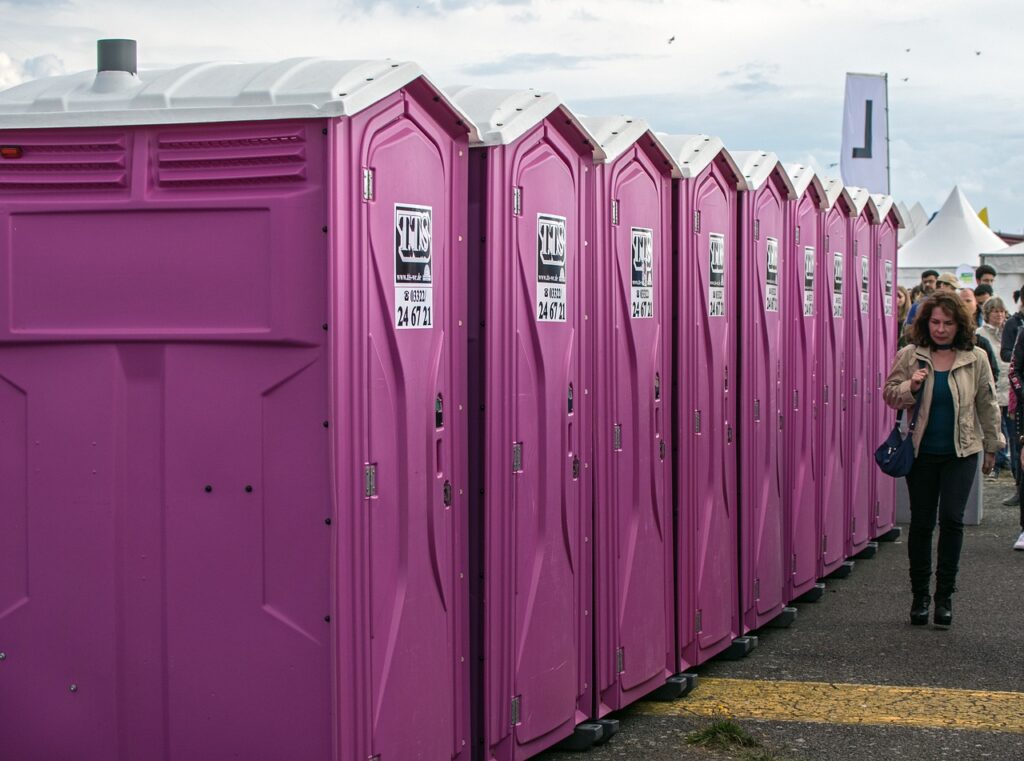
Quirk # 2 – No free toilets (unless you are a patron of the restaurant/establishment).
Berlin is a bustling city with a multitude of events happening at any given time. In the warmer months, there are also plenty of festivals and events to keep you busy such as the demos on May 1st, Fete de La Musqiue, Karnival De Kulturen, and 48 Hours Neukölln. But just because there are plenty of smiling faces and music blaring doesn’t mean you are going to find toilets that are free and open however. Instead you’ll be expected to pay a small fee (.50 to 1 euro) to use a toilet at an establishment. The same can be said if it’s not a festival or event and you just really need to pee while walking to your friend’s house. There are public toilets scattered around the city but unfortunately, you have to 1. Pay for those as well and 2. Probably won’t like the conditions. The safe bet is to use the bathroom before you leave the house or invest in some adult diapers (kidding, of course!) The third option would be to pop a squat behind a bush like a true Berliner.
Do you have to pay for toilets in Germany?
Yes, most establishments will require you to pay to use their toilet if you aren’t a patrom. If you are feeling cheeky you can just walk into the place like you own it and head directly to the bathroom without asking (here’s a helpful tip, Berlin bathrooms are usually located in the basement, so be prepared to walk down a creepy flight of steps before you find your throne.) You will also be expected to tip a bathroom attendant if you are in a shopping mall for example. The positive side is that these bathrooms will typically be more clean and sanitary.

Quirk #3 – English is very common.
Though the official language is German, English is very commonly spoken in the city center. You might even encounter only English speaking staff at restaurants since it is such a melting pot of other nations. No joke, once I was in a cafe in Neukölln and I ordered a coffee and cake in German. The server responded in English. I pushed back and said “I’d like to practice my German.” She then followed up with, “I don’t speak German”. Though you can get by easily without ever learning German in this multi-kulti city, it’s highly recommended to learn as fast as possible so that you can search for an apartment, open a bank account, establish an internet connection, gain employment, and renew your visa with ease. Otherwise you’d be wise to find a patient German friend who can help you sort out any scary burarecracy letters that arrive in your post. If you ever want to venture outside the ringbahn.
Is English commonly spoken in Berlin?
According to the Mikrozensus of 2020, Statistisches Bundesamt, about 56% of the German population speaks English – and in Berlin schools, English is introduced as a compulsory subject starting from the third grade. This applies to both English-speaking and non-English-speaking students. That means that even if you find your German language skills lacking, you will likely be able to find someone nearby who can help translate. This also makes it extremely hard to practice German in the capital city, because most people will automatically switch to English as soon as they detect you’re not a native German. Be warned!
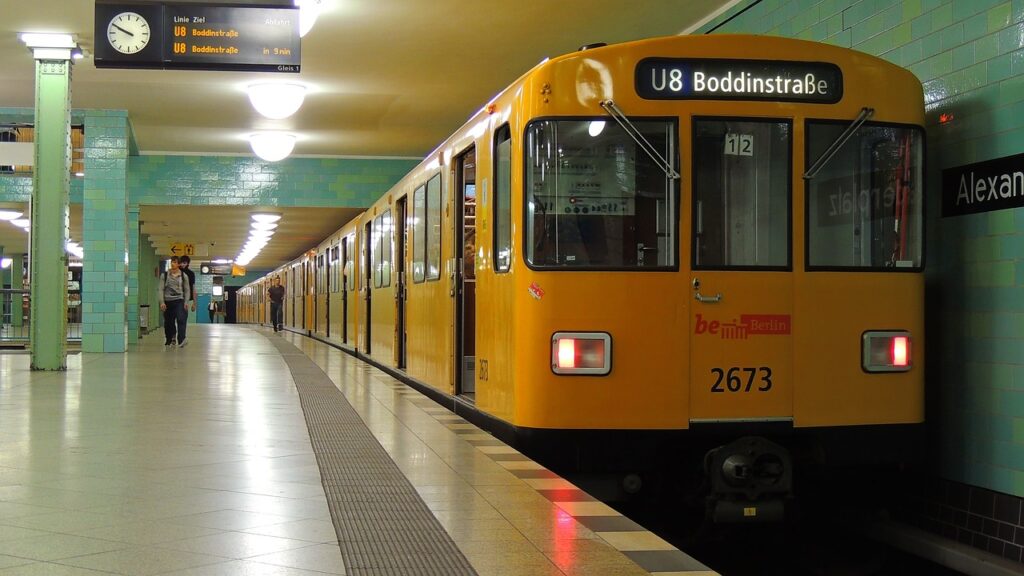
Quirk #4 – Honesty-based public transportation
Unlike other major cities where you have to pass through a turnstile before hopping on a train, in Berlin you have no such barriers. Essentially you could hop on a train or bus without paying for it – and many people do, but this is considered riding schwarz (or riding black) however and can get you a serious fine if you are unlucky enough to be controlled. In that case you will have to pay 80 euros fine. Not to mention you’ll get a deathly stare from every law abiding German citizen on the train. Save yourself the public embarrassment and just pay for the ticket. You can download the BVG app and pay for your ticket there or else there are machines at every Ubahn station. If you are only riding a short distance (less than 3 ubahn stations and less than 6 bus stops) you can choose the kurzstrecke, which costs less. You can also choose to buy a monthly pass or else buy your tickets in bulk to save even more. To read more about getting around Berlin head here.
Is public transporation free in Berlin?
No. Though you aren’t required to pass through a turnstile like other major cities such as New York City, you are still expected to pay. The cost depends on which zone you are in (A, B, or C), how old you are, how many stops you are going, whether or not you are bringing your dog or bike with you and whether or not you are eligible for a concession ticket. To buy your ticket, you can easily stop by a ticket machine in the station or download the BVG app, just make sure to validate it before you enter or you run the risk of getting fined by an incognito controller.
I prefer biking. Is Berlin bike friendly?
Yes, very. Though Berlin only ranks 15th on the Copenhagenize index, the most comprehensive ranking of bicycle-friendly cities on the planet, on September 7th 2021, the Senate, gave the state of Berlin a new cycling plan, one that will aimed to establish an extensive cycling network spanning over 3,000 kilometers, a substantial increase compared to previous initiatives. The new network aims to surpass previous standards, reflecting a commitment to enhance cycling infrastructure. And if you get tired? No worries, you can transport your bicycle on any U-bahn or S-bahn (as long as you purchase a bike ticket).
What about walking?
Walking is my favorite way to get around the city. In general (unless you’re hiking up the steep hill from Kreuzberg to Neukölln) Berlin is a pretty flat city, so you don’t have to worry about showing up to dinner drenched in sweat. It also packs a strong pedestrian infrastructure which means sidewalks are abundant. You’ll have a great time passing through each kiez and noticing how the people and syle changes along the way (Neukölln – Turkish + artsy hipsters, Kreuzberg – trendy, tattooed, Prenzlauer Berg – hip parents, Mitte – stylish, more posh). My one tip for walking throughout Berlin is to make sure you prepare for ALL the elements. Even if the forecast says no rain, pack an umbrella anyway. I also make sure to pack a few extra layers as well in case temperatures suddenly drop or a friend convinces me to go to a club.
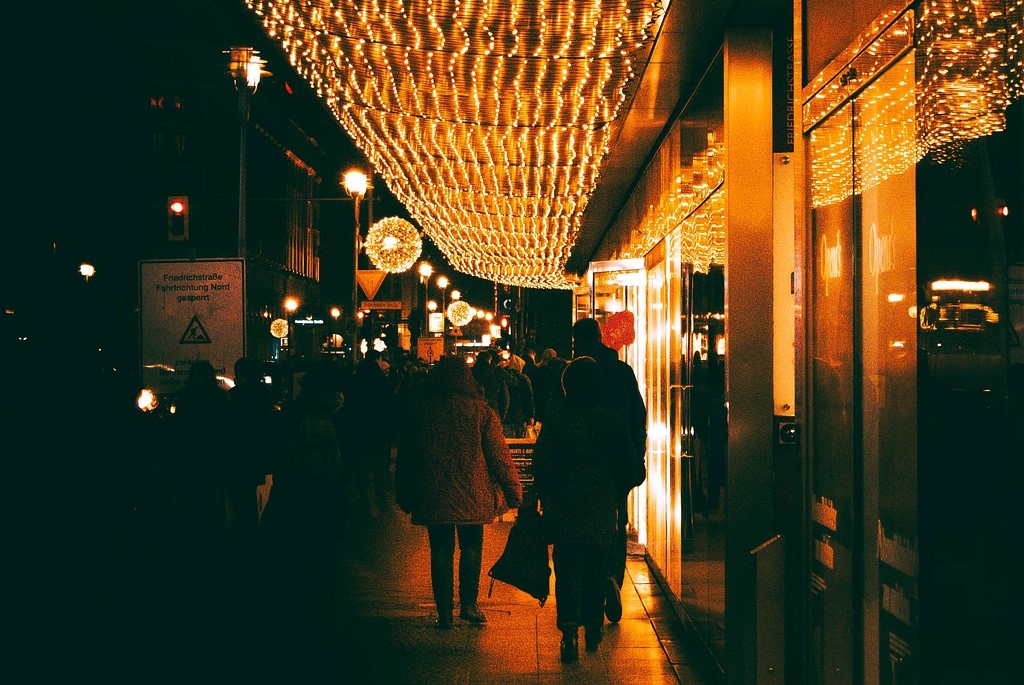
Quirk #5 – Dress down for clubs.
The more posh you’re dressed, the less likely you’ll get into a club, especially the world famous Berghain. In cities such as Miami, women will get turned away for NOT wearing high heels. In Berlin though, you will get laughed at the door if you show up in a mini skirt and stilettos, unless of course you’re a drag queen. Because parties can last upwards of 48 hours or more, bouncers want to make sure that when you come into their establishment you are prepared to stay….and dance your a&$ off. The fancier you are dressed (i.e. high heels, makeup, dress, shiny shirts, new shoes), the less likely you will be taken seriously and thus allowed in. If you and your guy crew insist on wearing your shiny shirts, be prepared to hear the following phrase from the bouncer “leider nicht heute” (not today, unfortunately) and then be prepared to hang your head in shame as you walk by all the other hopefuls waiting in the queue to get in.
How do I get into Berghain?
Berghain, the world famous techno club, is notoriously hard to get into but there are a few tried and true hacks that pretty much guarantee entry. First of all, go alone. If you show up alone you are more likely to get in. I don’t know why this works but it does. Wear black trainers. In fact, just wear black or muted gym attire and call it a day and don’t I repeat don’t wear makeup. I usually wear a brightly colored silk jacket with shoulder pads that I inheristed from my granny on top of black gym attire and this usually does the trick. While your outfit does have a lot to do with whether or not you get in it’s more about your attitude. Act like you simply do not care about anything on the planet (easier said than done, I know) and the bouncers will deem you worthy enough to enter the establishment. Oh, and also go during off peak hours either between 7a-9a or in the early evening.) Another tip is to make sure to check the lineup before in case a bouncer asks you who you are there to see (it happened to me once before.) I know this all sounds silly, but Berghain is a Berlin rite of passage. There is a reason why this place is legendary, once you spend a night there you will never be the same again. Good luck!
In conclusion, if you’re gearing up for a visit or move to Berlin, these quirks might just save you from a few head-scratching moments. Part 1 of our series has shed light on the city’s unique aspects, like the absence of free tap water – so be prepared to pay for that refreshing sip. And when nature calls, keep some change handy because free toilets are a rare find unless you’re a patron. On the language front, while German is the official language, English is a common tongue in the city center. However, don’t rely solely on it – learning German can make your life a whole lot smoother, especially when dealing with bureaucracy. Navigating public transportation in Berlin is a bit different too. No turnstiles mean you could technically ride without a ticket, but it’s best to avoid the hefty fine and the disapproving glares from locals. Biking is a popular and eco-friendly option, and the city’s becoming more bicycle-friendly with a growing network. Walking is a great way to explore Berlin’s diverse neighborhoods, just be prepared for any weather twist. Finally, when hitting the clubs, remember to dress down. The fancier your outfit, the less likely you’ll get into some iconic spots like Berghain. Follow my unconventional tips, and you might just secure your spot in this legendary techno haven.
That being said, you’re well on your way to being a true Berliner – where poor is sexy and weird is wunderbar! Stay tuned for part two where you will learn about Hitler’s old airport turned playground, Berlin’s love of ice cream and vegan fare and its aversion to cashless payments and coworking via cafes. You’ll also learn my favorite phrase in the German lexicon (Zu Verschencken) and why having one trash can is so überholt (outdated).


